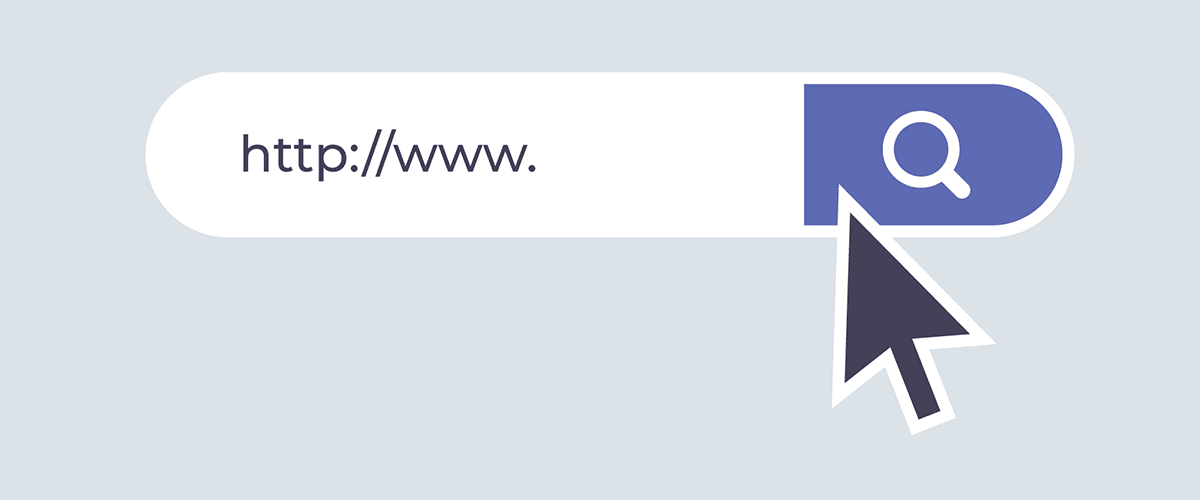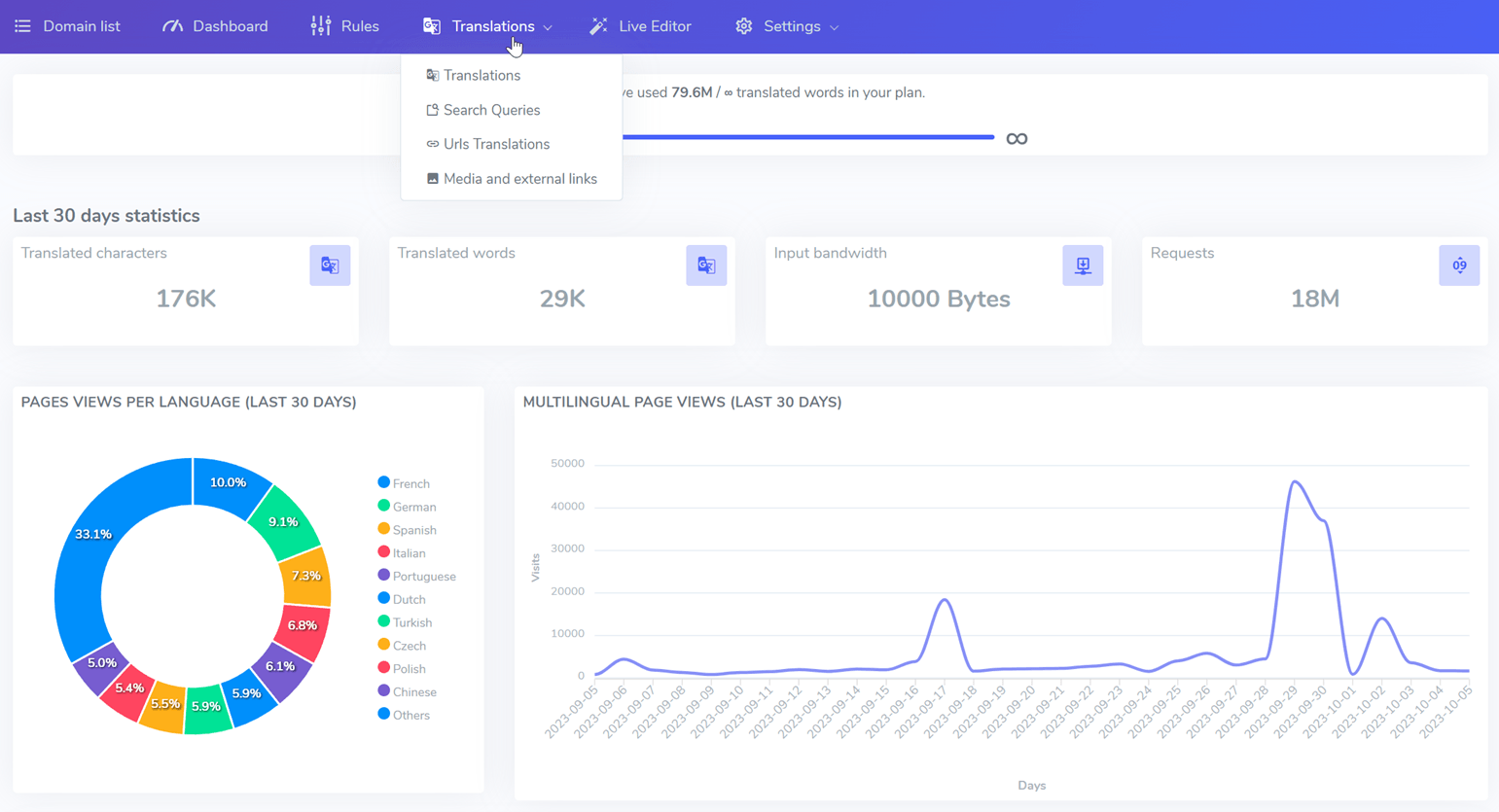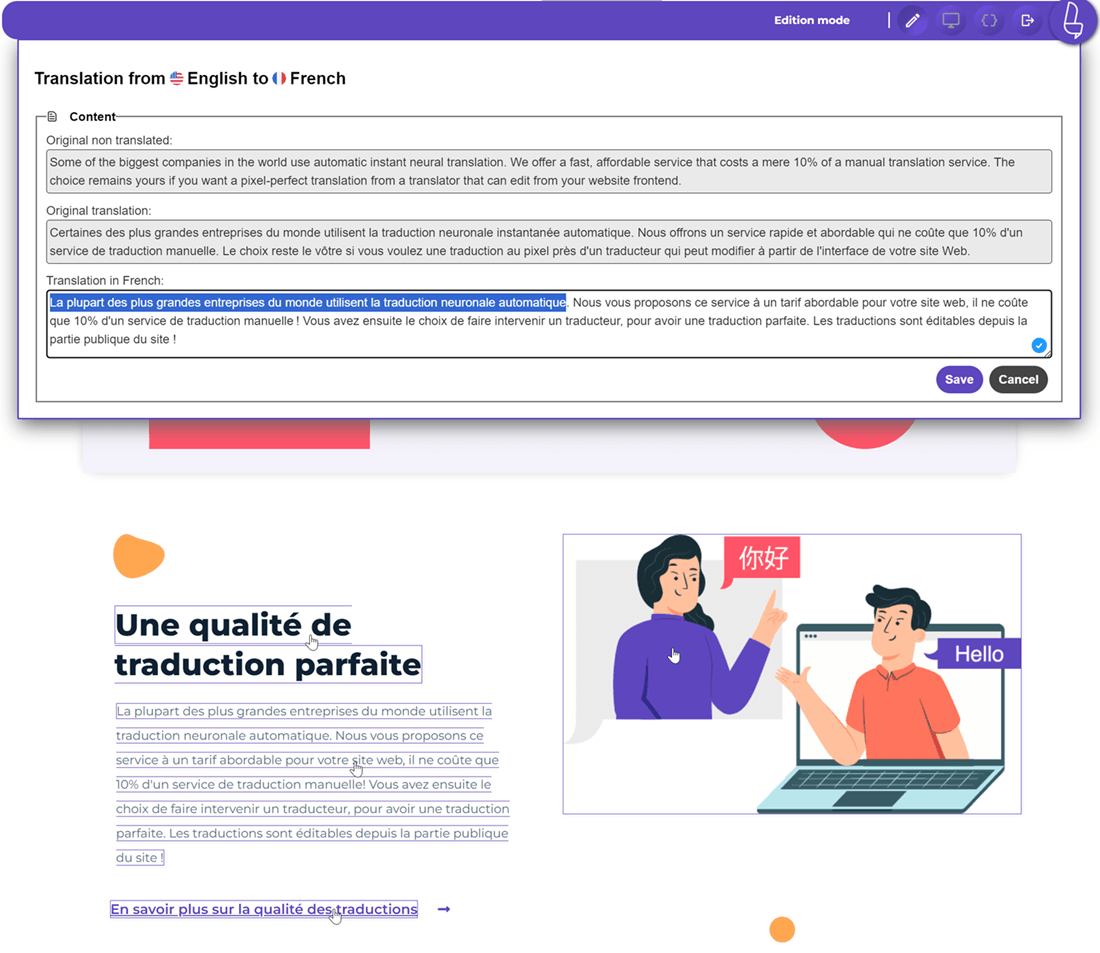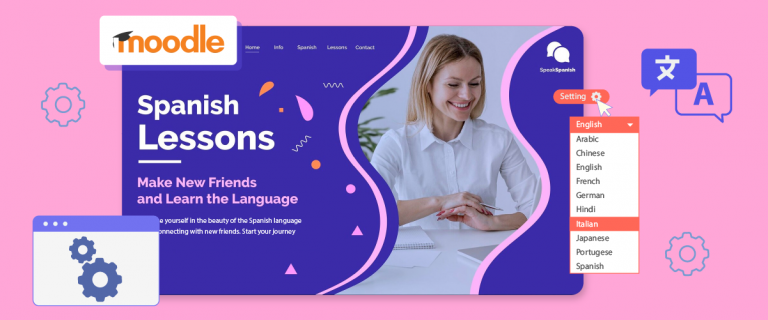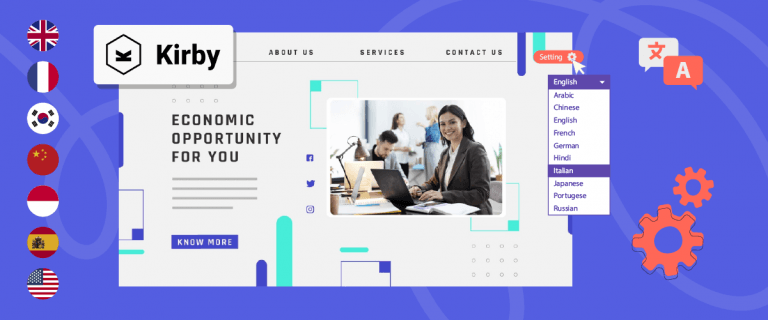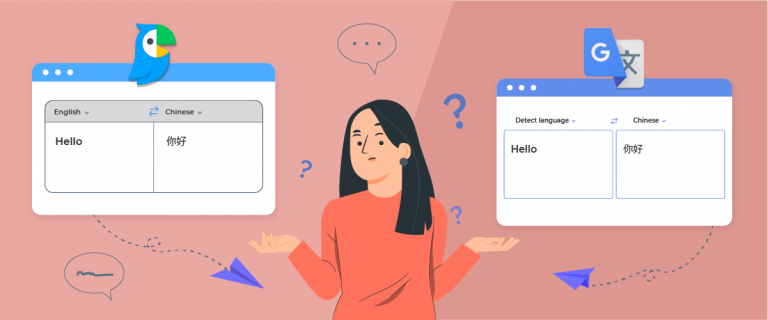Global outreach of content is all about accessibility. Reaching people around the world isn’t just about tech and internet access. Communicating with different people means you must speak their language, and you do not lose the message you are in translation. Even a global message falls short when met with language and cultural barriers.
Customizing your webpage for the sake of your audience creates a bond with the people you are trying to reach. It also reduces the potential for misunderstandings, and you can create some goodwill with recipients and potential customers. A focus on communication and translation is absolutely essential in today’s market. The real question is: how do you go about it?
What is the URL translation?
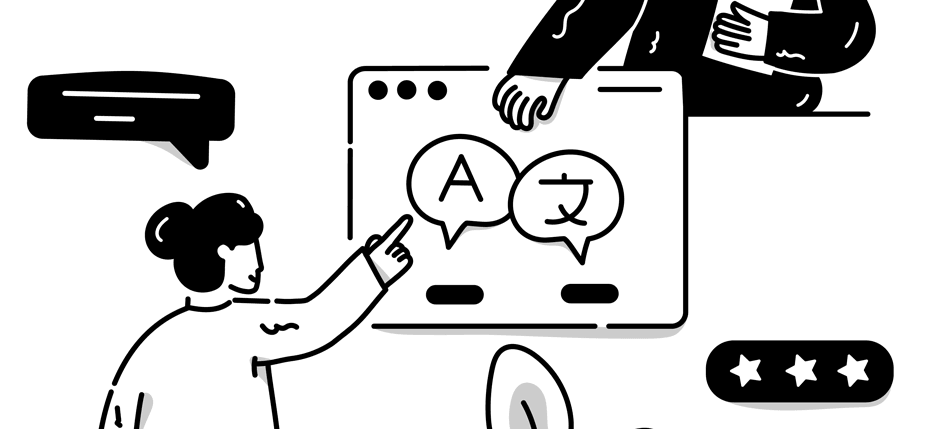
The first step you must take when making your website accessible is offering translations in various languages. These depend on where your target audience is. If you are offering a product or service in only a few regions, you can stick to those languages. If you have content intended for the global community, you will want to broaden the choices you offer.
Webpage translations are pretty standard nowadays. Many sites offer different languages on their webpage, depending on their user base. While these are helpful, they limit anyone not part of the targeted demographic trying to access the site. However, many plugins and extensions are now available that let you translate the contents of a page to almost any language.
So, how does URL translation play into this? Many web hosts overlook this aspect when translating their web pages. The URL, or the web address to your site, identifies who you are and what your page is about. It is a one-line summary of what visitors can expect when they visit your site, and it makes the process of information-sourcing all that much more efficient. URL translation is the process of customizing URLs to match the language of your web page- whatever that happens to be.
Why would you like to translate URLs
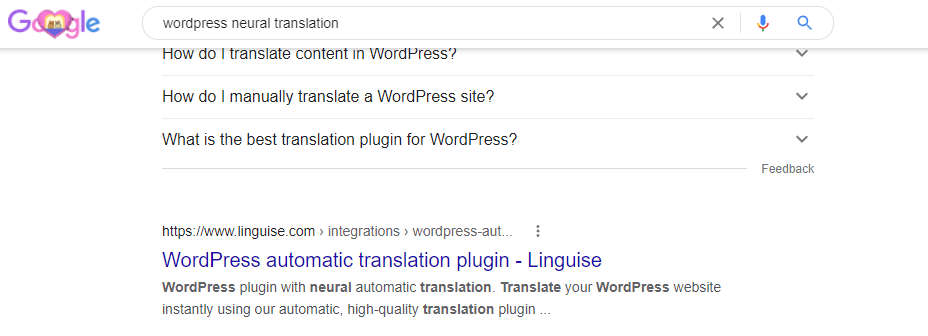
URL translation is one step further for improving accessibility. As a unique identifier for your site, it is one of the first pieces of information users interact with. URLs help users find and access your site. While the existence of search engines has substantially improved this process, it is still common to advertise by reference to their respective URLs.
Translated your website URLs enhance the user experience by creating a sense of familiarity. It also makes them more likely to visit your site. Search engine results such as those on Google will only show a snippet of the standard web page unless you create a static page for all your translated web pages. The translated URL shows the user the page they are trying to access is available in their language, which makes them more likely to visit it.
Additionally, URL translations enhance your overall SEO strategy. They can improve your SEO ranking when matching keywords available in your slug to the language your page is in. You are more likely to get hits with a translated URL when being accessed in that language.
Translated URLs in search results
The digital marketing approach behind your SEO strategy enhances search result visibility for your pages. The design of this strategy is for the algorithm employed by search engines to produce relevant results in response to a query. User-friendly sites are marked by web crawlers for their accessibility, generating more traffic for your site. They appear something like this:
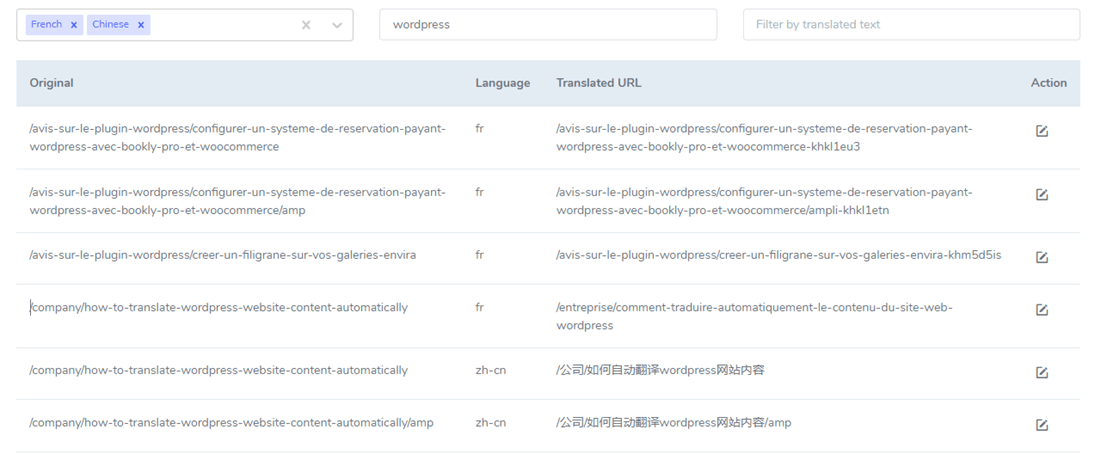
When targeting a specific audience, the relevance of your content may not do much good if it is in a language not often used by target users. This can potentially reduce traffic to your site, as search engines would not mark it as relevant in search results.
URL translation is considered best practice for any SEO strategy. It helps you boost your results to the top. They also boost user confidence in a site that makes linguistic sense. You can achieve good URL translation with tools available online such as Linguise.
Translating and managing URLs with Linguise
Linguise offers a translation service that makes web page and URL translation very simple. The tool uses a neural automatic machine translation plugin- essentially enabling you to translate within minutes. You can choose from over 80 languages to translate to, and with the ability to make your translations as needed.
There are also a variety of dedicated plugins available, depending on your host. You can choose from WordPress, Joomla, and WooCommerce, among others. These integrations make the translation process much simpler and faster, being just a click away. There is also a 1-month free trial available which lets you get started right away.
To start, register your account with Linguise and add your domain:
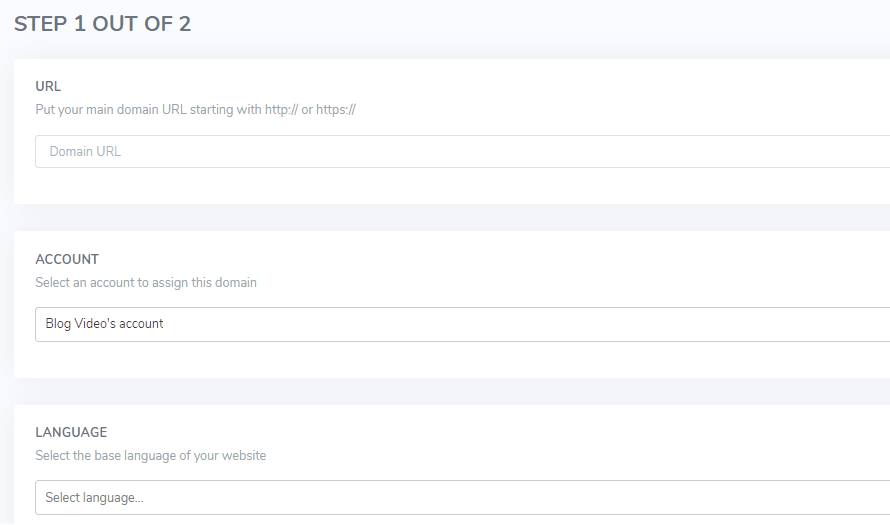
Scroll down on this page and select the option to translate the page URL.

When you click next, you will receive your API key that you can use on your website. You can also get the API key with specific plugins, such as to use with WordPress:

Now you can use the extension to translate any page or URL. You can also manage and keep track of your URL translations on your Dashboard:
While the automatic tool does all translations for you, you can always customize it. Click the action icon for the respective URL and make changes as you wish with the Linguise front-end editor:
Linguise offers a pretty simple and straightforward method to translate multiple page and domain URLs in one click. The service is speed optimized that does not create duplicate content, which can slow down your site and hurt the user experience.
In addition to translating all your pages, Linguise creates new pages for their translated counterparts. This creates new indexed pages that show up separately in search results. The alternate URLs are provided together with the translated pages that create greater visibility for your site.
Avoiding errors in URL translation
We have already covered why URL translation is essential and how you can go about it. However, there are some possible errors you should avoid when engaged in the process. The Linguise automatic tool takes care of these elements, but it is still important to be aware of the possible issues that can arise.

Research your keyword to include in URLs
The appearance of your keyword in the URL slug is crucial for SEO optimization. The keyword is what your content is most likely to be searched by, and it helps web crawlers rank your site. When translating your URL, pay special attention to your keyword. Decide how relevant it is to the culture whose language you are optimizing your URL to. A keyword that works well in one market may not work as well in another. Even direct translations may be ineffective in producing traffic. Research what keyword resonates best with your target audience, and go with that.
Stay culturally relevant also apply to URLs
The purpose of translating URLs is to connect with your target audience. That ties in with your overall SEO strategy, which boosts search engine hits, and your page is more likely to appear in top search results. However, staying relevant isn’t just about translating from one language to another. A word-for-word translation is good, but it is only the first step. It might be more beneficial to dig into the cultural aspects of your message- local slang and associated words and phrases can be much more useful in generating traffic.
Do your research on commonly used terms in local search results. They are more identifiable and relatable to your target user base. They are also more likely to be searched by potential users. Using seldom-used words, even if appropriately translated, will reduce the efficacy of your SEO strategy.
Avoid being technical with URL translation

URLs are often not user-optimized, to begin with. Overly long URLs create an alienation with your audience since they are hard to remember and hard to understand. When perusing through millions of search results in response to a query, most people look for something simple that is immediately understandable. Long and complex URLs turn away potential site visitors to find more precise, alternate results. Try to keep all your alternate URLs as short and simple as possible rather than trying to be too fancy, estranging your audience in the process.
Similarly, aim to make translated URLs personal. This means avoiding the use of symbols and characters as much as possible. Such URLs offer little information to the user, as they do not know what those characters mean. Instead, stick to using simple, relevant words wherever possible. They are easy to remember, refer to, and give the user an exact idea of what information they can access through your page.
Conclusion
URL translation is vital for global SEO optimization. This “hidden” aspect of SEO often gets overlooked, leading to reduced traffic in local search results. Using a reliable tool like Linguise can make the process faster, automatic and effective in boosting your site performance. Make sure to stay as culturally relevant as possible when translating URLs for the best results. Translated URLs with translated web pages significantly boost your SEO performance, generating greater traffic.

